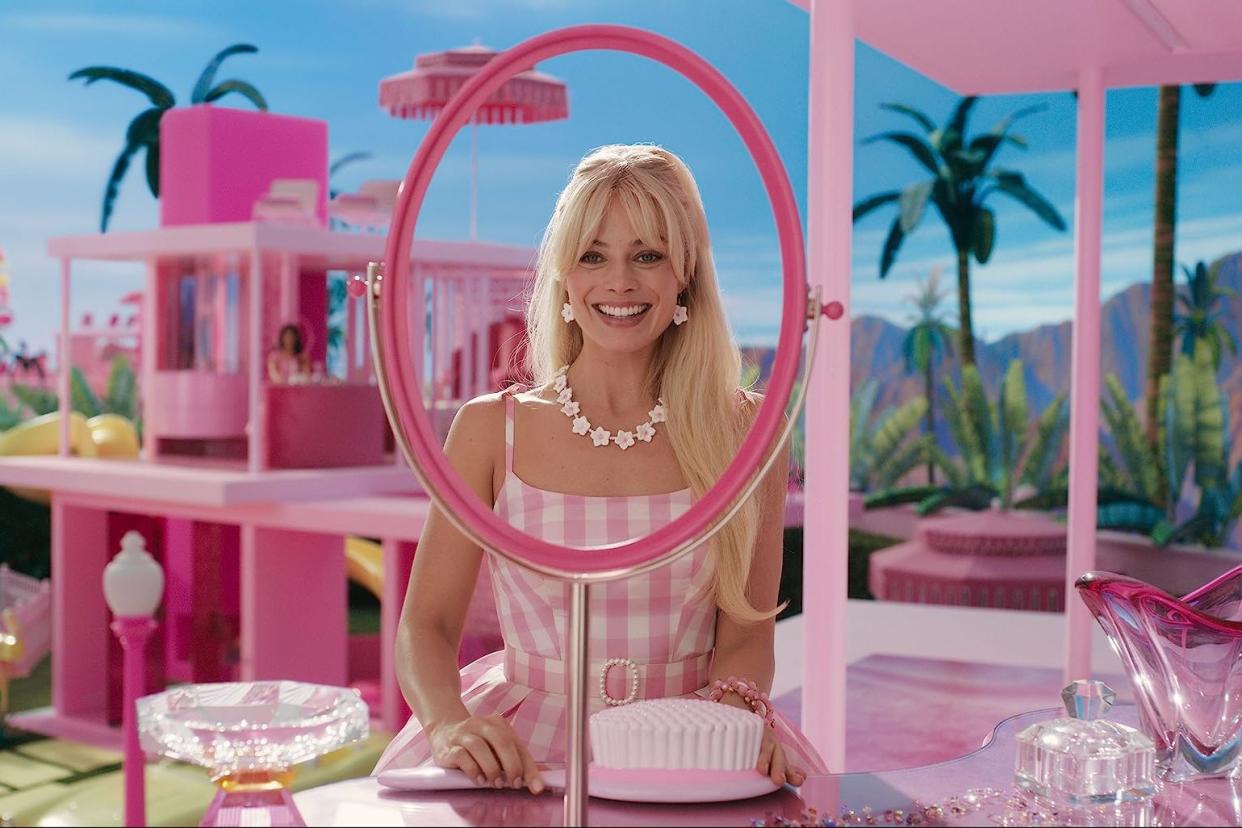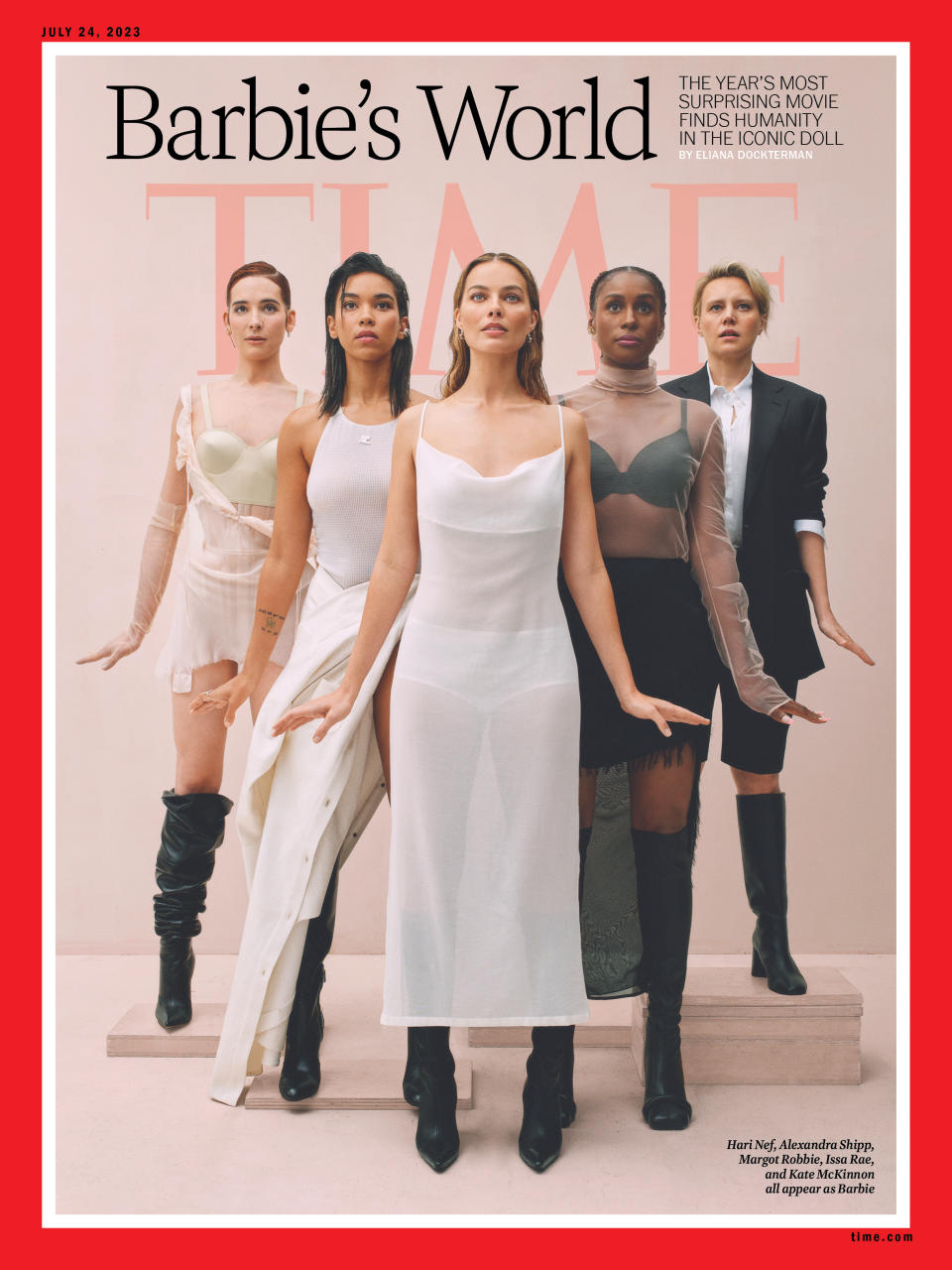Barbie Is Just the Latest Hollywood Film to Get Caught in the Crossfire of Asian Geopolitics

- Oops!Something went wrong.Please try again later.
Actress Margot Robbie as Barbie. Credit - Warner Bros. Pictures
The Barbie movie was meant to be for everyone. “If you love Barbie, this movie is for you,” the trailer for Warner Bros.’ summer blockbuster declares. “If you hate Barbie, this movie is for you.”
But with just weeks before the star-studded film about the titular doll was set to hit theaters, some in Southeast Asia have decided that it’s not for them.
It was announced in Vietnam on Monday that the cinematic distribution of Barbie would be banned over the display of a map that includes the “nine-dash line,” a disputed maritime border that China has controversially used to lay claim to virtually all of the South China Sea, even though it was rejected in 2016 by an international tribunal.
Authorities in the Philippines, also troubled by the promotion of the “nine-dash line,” are currently deliberating whether or not to permit the release of the film. “The movie is fiction, and so is the nine-dash line. At the minimum, our cinemas should include an explicit disclaimer that the nine-dash line is a figment of China’s imagination,” Philippine Senator Risa Hontiveros said Tuesday.

Read More: How Barbie Came to Life
More from TIME
The context of the alleged depiction of the nine-dash line in the new Barbie movie is unclear. But it’s not the first time this kind of censorship has occurred over similar concerns.
Last year, the Philippines and Vietnam both banned screenings of Sony’s action-adventure flick Uncharted because of a brief scene depicting the contentious nine-dash line. And in 2019, both the Philippines and Malaysia—another country that contests China’s territorial claims to the waterway—stopped the domestic distribution of the DreamWorks animated movie Abominable after producers declined a request to remove a scene showing the nine-dash line. (In Vietnam, Abominable had already been out in cinemas for more than a week before censors pulled it and fined the film’s distributor.) In 2018, a second-long clip, which featured a designer handbag with a map that showed the South China Sea’s islands under China’s control, was cut from Crazy Rich Asians screenings in Vietnam.
It’s not just the big screen that’s under scrutiny. In 2021, officials in the Philippines ordered Netflix to take down select episodes of Australian spy drama Pine Gap due to scenes containing the nine-dash line, while Vietnam demanded the entire series be removed from the streamer.
The repeated instances of the same issue raise questions about Hollywood’s relationship with China, which commands a 1.4 billion-person market. China has been critical to the global box office success of many contemporary films, and studios have been known to try to appease Beijing’s own stringent censors in an effort to not be shut out.
Recently, however, Hollywood studios, facing pushback for their acquiescence, have started to stand up to China. The trailer from Tom Cruise’s 2022 movie Top Gun: Maverick initially removed Taiwanese and Japanese flags to placate China, but following a public backlash, the flags reappeared in the film.
A U.S. Defense Department memo obtained by POLITICO last week said that filmmakers won’t receive support from the Pentagon—which typically assists on movies and shows that portray the military or require filming on bases—if they alter their productions to comply with Chinese censorship demands.
The growing resistance from Southeast Asian states to even blink-and-you’ll-miss-it flashes of subtle political propaganda in popular culture demonstrates a heightened vigilance against Chinese influence, says Richard Heydarian, a political analyst and senior lecturer in Asian affairs at the University of the Philippines. Outright bans come at a price: viewers excited to see much anticipated Hollywood blockbusters miss out, and it thrusts the censoring countries into the spotlight for what Heydarian says could be perceived as “petty oversensitivity.”
But getting attention is the point. “Sunlight is the best disinfectant,” Heydarian says. “Vietnam is reminding the world that Chinese state propaganda should have no place in supposedly innocuous productions like Barbie movies. It just doesn’t make sense.”

